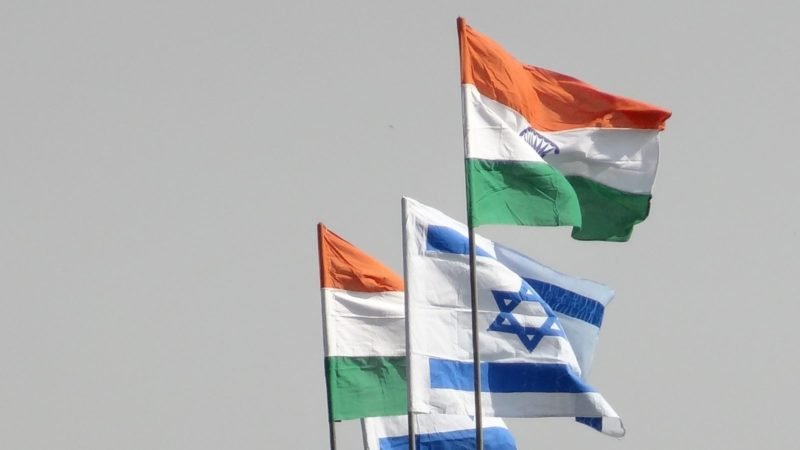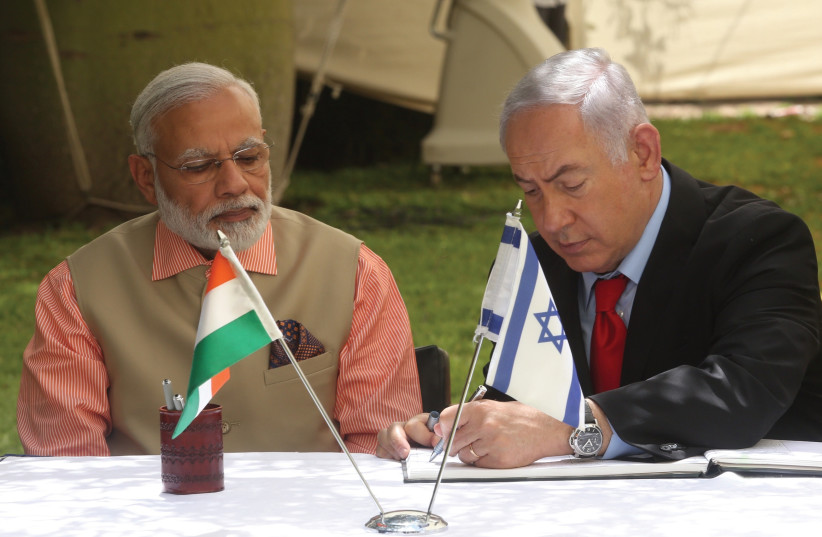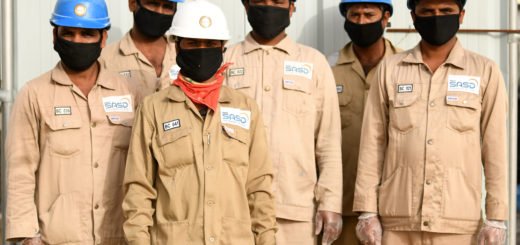21st Century Challenges in the relations between India and Israel

Partition is central to modern identity in the Indian subcontinent, as the Holocaust is to identity among Jews, branded painfully onto the regional consciousness by memories of almost unimaginable violence. The American photojournalist Margaret Bourke-White, who had witnessed the opening of the gates of a Nazi concentration camp a year earlier, wrote that Calcutta’s streets during the 1946 riots “looked like Buchenwald.”
India and Israel have a lot in common – from being invaded and ruled from time to time to having the oldest history mankind has ever seen, from having one great king who united the scattered regions into a single nation to having the oldest and continuously inhabited cities of the world, from a common colonial rule to a gruesome and bloodied partition, from an overarched relation with their neighbouring countries to achieving Independence after the end of Second World War (India got independence on 15th August 1947 whereas Israel declared its independence on 14th May 1948), both the nations today share an extensive and a strengthened relation. Both the countries witnessed an exodus of human population from one place to another and a partition by the British on religious lines. Thousands of Jews, from around the world and especially from Europe migrated to Israel and similarly millions of Hindus from Pakistan migrated to India leaving behind their ancestral land and property.
Scholars have argued that in the post-cold war era India started following a robust realist foreign policy posture and India’s approach towards Israel is a classic affirmation of this stand. During our freedom struggle, the top leadership led by Mahatma Gandhi was sympathetic to the Palestine question. During the cold war years, Indian foreign policy was of a moralpolitik and hence India could not appreciate the strategic potential of a robust relationship with Israel as it was unable to move beyond the narrow confines of ideological solidarity with the Palestinian cause. On September 17, 1950, India accorded formal diplomatic recognition to Israel. Soon thereafter, an immigration office was set up in Bombay to be upgraded later into a Trade Office.
It was subsequently transformed into a Consulate. With the establishment of full diplomatic relations in 1992, embassies were opened. Political relations between the two countries are cordial. This is affirmed by the fact that two Israeli Presidents have visited India – Ezer Weizmann in 1996 and R. Rivlin in 2016. Prime Minister Ariel Sharon visited India in 2003. From India, President Pranab Mukherjee visited Israel in October 2015. PM Modi became the first Indian Prime Minister to visit Israel. What was more important was, that it was not marked by a conventional balancing act of visiting Palestine also. There has been a plethora of Ministerial-level visits in the recent past External Affairs Minister, Sushma Swaraj visited Israel in January 2016; Agriculture Minister Radha Mohan Singh in September 2016. Prime Minister Benjamin Netanyahu visited India in 2018 to commemorate 25 years of Indian-Israeli relations, accompanied by a 130-member delegation, the largest that has ever accompanied a visiting Israeli premier.

Judaism was one of the first foreign religions to arrive in India in recorded history. Indian Jews are a religious minority, but unlike many parts of the world, have historically lived in India without any instances of antisemitism from the local majority populace. In the beginning of the 21st century, new Jewish communities have been established in Mumbai, New Delhi, Bangalore, and other cities in India. The new communities have been established by the Chabad-Lubavitch movement which has sent rabbis to create those communities.
In February 2007, the first Jewish-Hindu interfaith leadership summit was held in New Delhi. The summit included the then Chief Rabbi of Israel, Yona Metzger who stated “Jews have lived in India for over 2,000 years and have never been discriminated against. This is something unparalleled in human history.” In November 2012, Israeli President Shimon Peres remarked, “I think India is the greatest show of how so many differences in language, in sects can coexist facing great suffering and keeping full freedom”. The relation between the two nations that started coldly, has over a period of time become one of the greatest shows of mutual respect and friendship. In today’s changing scenario, the strategic ties between these two nations are a real delight.
New Delhi found in the defence industry of Israel a useful source of weapons, one that could supply it with advanced military technology. Thus, was established the basis of a burgeoning arms trade, which reached almost $600 million in 2016, making Israel the second-largest source of defence equipment for India, after Russia. India and Israel have increased co-operation in military and intelligence ventures since the establishment of diplomatic relations and the rise of Islamic extremist terrorism in both nations has generated a strong strategic alliance between the two. Over a period of time, India has purchased unmanned aerial vehicles, the surface to air missiles, cruise missiles, PHALCON AWAC’s, spike anti-tank missiles, Rafael advanced defence systems from Israel and signed billions of dollar worth military agreement.
The bilateral trade between India and Israel grew from $200 million in 1992 to $5.84 billion in 2018. India’s major exports to Israel and vice versa include precious stones and metals, organic chemicals, electronic equipment, plastics, vehicles, machinery, engines, pumps, clothing and textiles, and medical and technical equipment, fertilizers, salt, stone, cement and plastics. The two countries have also signed a ‘Double Taxation Avoidance Agreement’. Simon Peres’s 1993 visit to India allowed for direct scientific cooperation between both governments in areas of information technology, biotechnology, lasers, and electro-optics. Additionally, a joint committee to monitor collaboration between the two nations was established and set to meet biennially. Ever since both countries have discussed doubling their investment in their ongoing science and technology collaboration and setting up a fund to encourage bilateral investment into industrial research and development and specific projects. From 2006 to 2014, the fund, named i4RD, has been used in seven projects. In 2012, the two countries signed a five-year $50 million academic research agreement for promoting collaborative research across a wide range of disciplines, including medical and information technology, social and life sciences, humanities, and the arts.

Israel has offered to help the Indian government with a project to clean the Ganga. An Israeli delegation visited India in August 2015 and met with officials of the Union Ministry of Water Resources, River Development and Ganga Rejuvenation. Israeli Ambassador to India Daniel Carmon also called to offer Israel’s expertise in water management to battle water scarcity. Israel is keen to help in India meet its water needs for agriculture and drinking and has been pushing for more government-to-government agreements. The non-profit India based global trade body, NASSCOM, along with the professional service company, Accenture, released the report Collaborative Innovation: The Vehicle Driving Indo-Israel Prosperity, to highlight areas of scientific and technological collaboration between the two countries. Additionally, the non-profit organization TAVtech Ventures launched a program that connects students from Israel and the United States with local Indian students to come up with tech-based startups.
Israel expressed interest in participating in ISRO’s proposed mission of sending an unmanned craft to the moon. In 2005, Israel launched TecSAR, its first synthetic aperture radar imaging satellite on PSLV. TecSAR was chosen to launch through India’s PSLV due to Israeli concerns about the reliability and technical limitations of its own Shavit space launch vehicle, economic considerations, and also due to Israel’s desire to increase strategic cooperation with India. India has chosen Israel as a strategic partner (G2G) in the field of agriculture. This partnership evolved into the Indo-Israel Agricultural Project (IIAP), under the Indo Israel Action Plan. With the recent discovery of the Tamar and Leviathan gas fields off the coast of Israel, India has been one of the first countries to bid for an exploration license in order to extract and import natural gas from the Jewish State. India’s ONGC Videsh, Bharat Petro Resources, Indian Oil and Oil India were awarded an exploration license by the Israeli government, a clear sign of the ongoing diversification in ties between the two countries.
Despite “India’s unwavering support for the Palestinian cause”, India has assured Israel that when the time will come, they will never, never, ever let anyone [act against] the existence of Israel.” The ties between the two nations have flourished since 1992, primarily due to common strategic interests and security threats. Indians are sympathetic towards Israel and the government is balancing and recalibrating its West Asia policy on the premise of its own national interest. India’s diplomatic dexterity and its close ties with Israel are not only a game-changer for the West Asia policy, but are a budding step for these two nations to collaborate and work for a better and safeguarded future for their citizens. India and Israel need to overcome the vulnerability of their religiously extremist neighbours and hyper productively work on global issues like climate change, water scarcity, population explosion and food scarcity.


















